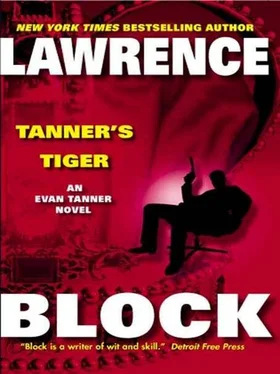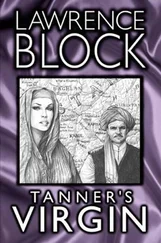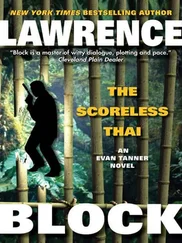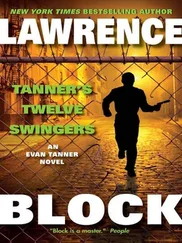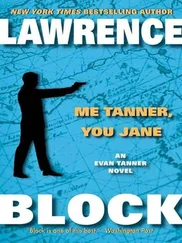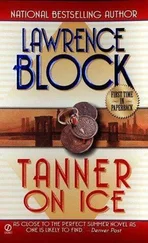The sun came up, hot as ever. I prowled through Arlette’s cupboards until I found an old bottle of cooking sherry, and I drank that, too. On the seven o’clock newscast I learned that a body had been discovered at the Expo site, and that foul play was feared. At eight o’clock I discovered that De Gaulle had made a forceful speech at Lyon, coming out foursquare for the independence of Quebec. At eight thirty Arlette’s radio assured me that a spokesman for Mrs. Battenberg had denied that Free Quebec sentiment would affect plans for a royal visit to the fair.
At nine o’clock fingerprints on the murder gun were positively identified as belonging to Evan Michael Tanner, American, fugitive from justice, kidnaper, terrorist, and killer.
I looked at the heroin and wished I had a hypodermic needle.
“Of course you realizethat it is suicide.”
“I know this,” Emile said. “Utter suicide. You would not have a chance.”
“I do not expect a chance. I am not a fool, Evan.”
I doubted this. I looked at Emile, then glanced at the bed where Arlette was still sleeping. It was somewhere around noon and she was still asleep and I envied her. Insomnia, I decided, was more curse than blessing. Arlette managed to escape the slipstream of human madness for eight hours out of every twenty-four. God, how I envied her.
I looked again at Emile. He was seated, with Jean and Jacques Berton crouching at his right like couchant lions while Claude hulked grimly at his left. He didn’t look mad, I thought. And when he spoke, he seemed quite calm and rational. Until one happened to pay attention to his words.
“I am not afraid to die, Evan.”
“It is not a question of personal fear. The movement-”
“The movement needs our deaths more than our lives.” The sentence has at least as grand a ring to it in French as in English. “The movement cries out for martyrs, Evan. The MNQ is – admit it – in many quarters no more than a joke. A majority of those who sympathize with us nevertheless regard us as cranks, as unworldly fanatics. Is it not so?”
“All extremist movements begin in that fashion, Emile-”
“And how is public opinion changed?”
I didn’t get a chance to answer that one. “By fire and blood,” Claude cut in. He coughed and spat for emphasis. “By the grand act, by sacrifice.”
“Exactly,” said Emile. “Exactly. The grand act, bold and daring and dramatic. The act need not be logical. It may be senseless, it may be foredoomed to failure. This does not matter. But it must be an act that brings counteraction, an act that yields a crop of martyrs for the cause. The soil of liberty is fertilized by the blood of martyrs. You know this is true, Evan. You know full well that nothing rallies the public to a cause like the demonstrated willingness of patriots to die for it.”
I might have argued more forcefully if I hadn’t happened to know that he was absolutely correct. My mind could do nothing more than summon up examples that proved his point. The 1916 Easter Rebellion in Dublin took place with half the country opposed to republicanism and the other half profoundly apathetic. The rising was squashed, as its leaders knew it would be; the British executed the leaders, as everyone had assumed they would – and two years later Sinn Fein swept the national elections in a landslide.
The situation in Quebec was much further from fulfillment, of course. But the basic pattern remained the same. Martyrs, sacrificing themselves heroically for an ideal, would do more than reams of propaganda to change the Quebec nationalists from a laughingstock to a political force.
I closed my eyes. Claude was talking. On the bed Arlette moaned in her sleep; perhaps his rough voice was giving her bad dreams. I myself was not paying any attention to what he was saying. If Emile was right (and I had to admit that he was) and if I truly supported the cause of the MNQ (and I certainly did), then I ought to be backing him and Claude and the Berton Boys all the way.
But I wasn’t.
Because they had decided, all of them, that they were going to abandon the kidnaping plans entirely. And they had decided, all of them, that they were going to put into effect the public assassination of the Queen of England.
And no matter how I looked at it, this just didn’t seem like a good idea.
“I don’t understand one thing,” I cut in. “Yesterday you opposed assassination, Emile. Yesterday you said-”
“Yesterday was a thousand years ago.”
It seemed that way to me, all right. “But what has changed your mind?”
“You heard the General’s speech? You heard the words of the grand Charles?”
“I caught a newscast, yes. But-”
“You must hear the entire speech, Evan. Then perhaps you will realize what has changed my mind, as you put it.” He smiled gently at me, a wise old teacher being patient with a slow but willing pupil. “The General is very highly respected throughout French Canada, Evan. By publicly endorsing our cause, he has advanced the timetable of rebellion by years. Years! It is not merely that he has focused attention upon us. He has done more than this. He has lent us the support of his worldwide prestige. He has told the world that the cause of Quebec is the cause of France. Yesterday it would have been good strategy to kidnap the Queen. It would have generated publicity that we were greatly in need of. Today all has changed. Our position is stronger, Evan, and our needs are different.”
“It has always been that way. The bitch must die.” This from Claude.
“Let us not quarrel.” Emile spread his hands. “To kidnap the Queen now would merely draw everyone’s sympathy to her. Is it not so, Evan? The public identifies with those who suffer. The long, drawn-out suffering, the man trapped in a cave-in, the child in a well, the kidnaped baby – everyone sheds tears for them. So it would be with her.”
“People sort of sympathize with victims of assassination, too.”
“It is not the same. Then the act is quick, terrible, perhaps brutal, but it is over. And the martyrdom of the Queen – innocent, yes, but who is not innocent? – her martyrdom blends with and is overshadowed by our own. The crowd seizes us, we are torn to pieces, our names are on the lips of the multitude. The Queen becomes, not our victim, but the victim of history-”
“The bitch must die.” Claude again.
“And we must die with her. You talk, Evan, of my personal value to the movement. It is true that I have been something of an organizer. But I am old, you know, and my value in this respect is approaching its end. The future belongs to youth, and it is they who will continue my organizational work. My supreme value will lie in martyrdom.”
“So you’ll be in on the killing?”
“Yes. And Claude, and both Jean and Jacques. Just we four.”
“I see.”
He lowered his eyes. “I had intended to invite you to join us, Evan, but I was voted down. And the others, I suspect, are correct, your own devotion notwithstanding. They felt that as an American citizen, as someone neither French nor Canadian, it would not do to have you publicly identified with the act of assassination. I hope you will not feel slighted…”
Not in the least, I thought.
“We know your work is important to us, and it will continue to aid our cause in years to come.” The gentle smile again. “Of course you must envy those of us who are privileged to die as heroes. But in a way you too are to be envied. For it is you, Evan, who will see the fruits of what we begin. While we, like Moses, lead our children to the gates of the Promised Land, you, like Joshua, will actually enter the vineyards of Canaan.”
Читать дальше
